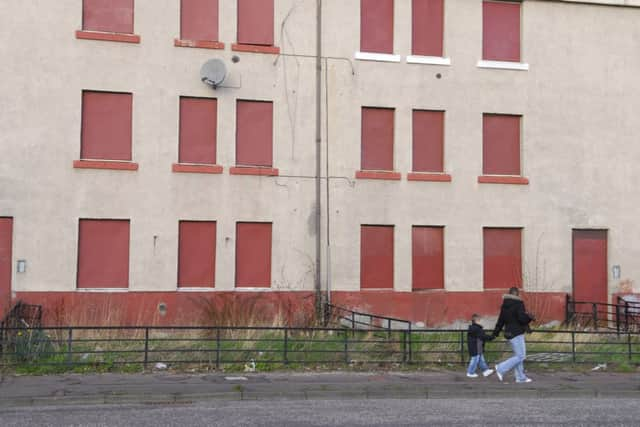Poverty is rising in Scotland


Poverty and inequality should be the central issue of the UK general election campaign. It is now five years since the Westminster parties signed up to the 2010 Child Poverty Act, committing themselves to big reductions in poverty by 2020. Yet since then poverty levels have soared. The spread of low pay, rising housing costs and further cuts in benefits levels mean that those targets are now even less likely to be met.
Deprivation is widespread in Scotland – almost one million people cannot afford adequate housing conditions – from a damp-free home to an adequate level of heating. More than 250,000 children are not properly fed. More than 400,000 adults go without essential clothing.
Advertisement
Hide AdAdvertisement
Hide AdUsing a publicly set minimum standard, poverty levels across the UK have doubled since 1983, when we first started our research, from around 14 per cent of households to 30 per cent. Interestingly, the latest survey findings for 2012-13 show poverty levels in Scotland, once higher, are now lower than in any other region or nation of the UK. One of the big effects of devolution has been to encourage a much greater diversity in the political debate around poverty. At Westminster, the issue has become increasingly highly charged with ministers, and much of the media, blaming the poor themselves for their poverty, for “shirking” rather than “striving”, while attempting to play down the scale of the problem.
The Scottish Parliament, by contrast, has taken a much more sympathetic line on the plight of the poor and a much more positive view of welfare, while taking its role in tackling poverty much more seriously than Westminster. Further, it has opposed vehemently many of the policies stemming from the UK parliament, including the Bedroom Tax and “big bang” welfare reforms which have enforced major cuts in benefit levels. It also has a pro-active anti-poverty strategy. Thus, housing costs – for all types of tenure – have not risen as fast as in England and the shift to the private rented sector – with its higher costs – has been less sharp. There has been no attempt in Scotland to make council rents rise to meet housing association rents, as is the case in England, thereby keeping the cost of social housing in Scotland down and achieving a lower poverty rate for this tenure.
However, though doing better than England, Scotland has seen a rise in poverty over the past 30 years. Across Britain, growing affluence is now, remarkably, associated with rising, rather than falling, relative poverty. Indeed, a high level of poverty is now endemic to the British economic model, driven by an increasingly hostile jobs market, deteriorating housing opportunities and an economic system that allows the richest to colonise a growing share of economic growth.
It is perfectly possible to run an economy in which the cake is more evenly shared, in which the rich pay their fair share of taxes, in which the poor are not made the scapegoat for the manifold failures of economic and social policy.
The global evidence shows more market-based, inequality-biased economies (such as the UK and US) have much higher poverty rates than more regulated, egalitarian economies such as those in parts of the continent. A significant fall in poverty would require a reduction in core inequalities through policies aimed at raising the earnings floor and capping the ceiling, a more progressive tax system bearing more heavily on the rich, and a more even spread of power away from an over-dominant corporate and financial elite to the workforce, small businesses and consumers. In short a very different economic and social model.
• Stewart Lansley and Joanna Mack were Open University members of the 2012 Poverty and Social exclusion research team and are authors of Breadline Britain, The Rise of Mass Poverty www.poverty.ac.uk.
SEE ALSO